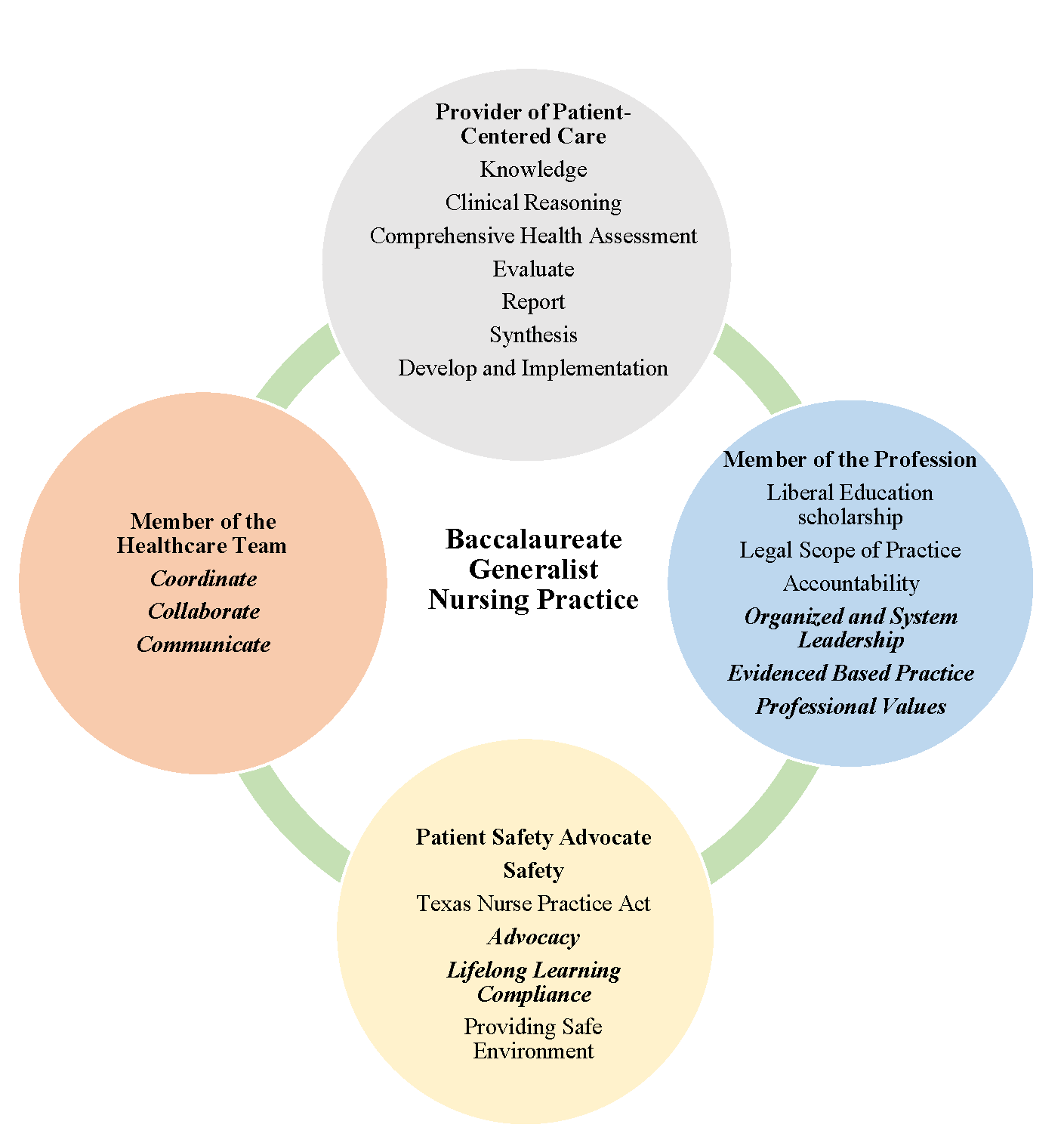Program Mission
BSN Home | Admissions | Program Mission | Announcements & Resources | Faculty & Staff
Program Mission
The Nursing Department fully embraces the mission of its governing organization, San Antonio College. Our goal is to prepare professional nurses for the workplace and to encourage program graduates to pursue advanced education in order to further their personal and professional development. The nursing program seeks to equip students with critical thinking, empirical and quantitative analytic strategies, communication techniques, and leadership skills that they will need for the myriad of changes they will confront in health care delivery systems of the future. The nursing program also seeks to prepare nurse graduates with a sense of personal and civic responsibility, an appreciation for excellence in learning, and an ability to work effectively with others.
End of Program Student Learning Outcomes
The San Antonio College Nursing Department elected to be a part of the Texas Consortium Concept Based Curriculum. The group of educators across Texas joined and identified seven program outcomes that are aligned with the Differentiated Essential Competences for Baccalaureate Prepared Nurses and the AACN essentials of a baccalaureate nurse. The seven program outcomes are as follows:
- Use clinical reasoning and knowledge based on the nursing program of study, evidenced-based practice outcomes, and research studies as the basis for decision-making and comprehensive, safe patient and population care.
- Demonstrates inquiry and analysis in applying patient care technologies and information systems to support safe nursing practice and population risk reduction.
- Leads safety and quality improvement activities as part of the interdisciplinary team and as an advocate and manager of nursing care.
- Manage care transitions and promote population risk reduction with diverse communities in collaboration with members of the interdisciplinary health care team.
- Participates in monitoring institutional, professional and public policy to maintain adherence to standards of practice within legal, ethical, and regulatory frameworks of the professional nurse.
- Demonstrate leadership skills related to financial, human resource, clinical and professional issues in providing and evaluating care.
- Demonstrate leadership and advocacy that reflects the values and ethics of the nursing profession.
Conceptual Framework
The SAC nursing programs utilize the differentiated essential competencies (DEC) to guide the instruction and curriculum to prepare nurses to practice in healthcare. The ADN roles responsibilities serve as a foundation for the BSN DEC. The conceptual framework for the SAC nursing program integrates the DEC and the AACN essentials for the Bachelor of Science in Nursing program. The conceptual model demonstrates all the roles and competencies required for a BSN to perform at a generalist level. The conceptual model has all three governing agencies together and identifies the DEC as the roles of the BSN nurse and the QSEN and AACN essentials as characteristics of the nurse. In the model, overlapping concepts are bolded and italicized. Many of the roles and skills needed to perform overlap and complement one another. The conceptual framework for the Baccalaureate Nurse differs because it encompasses leadership, community, and information technology. The Baccalaureate nurse charged to serve as a leader, recognize and develop solutions based on evidenced based practice and safety guidelines. The conceptual framework is derived by the three regulatory agencies and purpose for the program.

The ACEN/BSN Program Outcomes
The RN-BSN program outcomes are evaluated using the ACEN standards similar to the ADN program. Gathering data on the outcomes supports the effectiveness of the program preparation. The following are the goals for the program.
Program Completion Rate
The program will have 75% of the students will complete the program within the 150% designated timeframe.
Job Placement
At completion of the program, 75% or greater of the SAC graduates find employment in the nursing profession as a RN-BSN.
